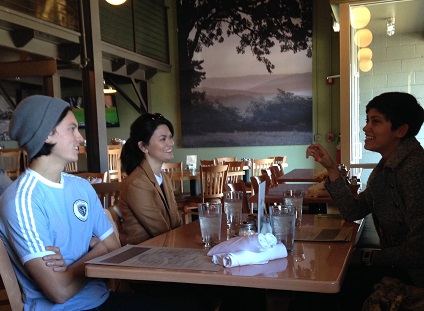Team Haden headed out for Small Business Saturday this year. We got to feel virtuous about doing holiday shopping with local independent merchants, and we ended up at a local independent restaurant for local craft beer and artisanal pizza.
We weren’t alone. Black Friday weekend shopping was down 11%, but Small Business Saturday shopping was up up 14.9 % as 88 million consumers took part in the newest shopping holiday. Forbes reports that the take for local independent merchants and restaurants was in the neighborhood of $14.3 billion.
CyberMonday did well, too, ending up 17% higher than last year and hitting $2 billion for the first time.
So what happened to Black Friday?
The classic scapegoats for a poor showing on Black Friday are the weather and the economy, but neither of those explanations will wash this year. Here are some possible explanations for the lackluster sales:
- Blurring of the lines Retailers were aggressively promoting the Black Friday specials from Veteran’s Day on and many had special prices earlier than Friday — not to mention the Thursday afternoon opening. It’s hard to treat a single shopping day as special if it spreads out for days or weeks.
- The empowered consumer It used to be that the retailers determined what consumers could easily get and how much they would pay, but now shoppers know better. They have plenty of choices, and they’re willing to pit one retailer against another. They also know that Black Friday doesn’t have the deepest discounts on most products, so they’ll wait.
- Pushing discounts too far Consumers can probably save 10 or 15% every day if they shop online, so they don’t get excited about those discounts. We heard shoppers announcing that they want 40% discounts. For retailers, that means either losing money on the sale or artificially inflating prices ahead of time. There can’t be very many below-cost sales or retailers will go out of business, so consumer demands may just be out of line.
- The training effect Retailers decide when and how deeply to discount depending on sales and consumer behavior. Consumers have been trained to wait for deep discounts. That means that the rest of the shopping season could be a showdown between consumers determined to wait for deep discounts and retailers determined not to give them. There have been years when shoppers waited till after Christmas, relying on gift cards.
- Rearranging the spend While retailers would like to get shoppers to buy more, the consumers don’t have unlimited funds. If Black Friday has lost its mystique, shoppers may spend the same amount but distribute it more evenly over the season. There is some evidence that people are doing their holiday shopping earlier.
- A change in shopper behavior Today’s shoppers may choose the convenience of internet shopping and the chance to support things they believe in — even if that’s only local businesses — over the tradition of lining up and shoving through crowds at Big Box stores. Field Agent’s Black Friday Scoreboard has plenty of crowdsourced evidence that people don’t actually enjoy Black Friday, and that’s the people who participate. Maybe this particular tradition is on its way out.
Whatever the reason, there are still a lot of shoppers out there, and most people haven’t finished their holiday shopping yet. Is your website encouraging visitors to see your products as giftworthy? Now’s the time to fine-tune images and product descriptions, to add holiday content and to make sure there aren’t any bugs in the check out process.


Leave a Reply